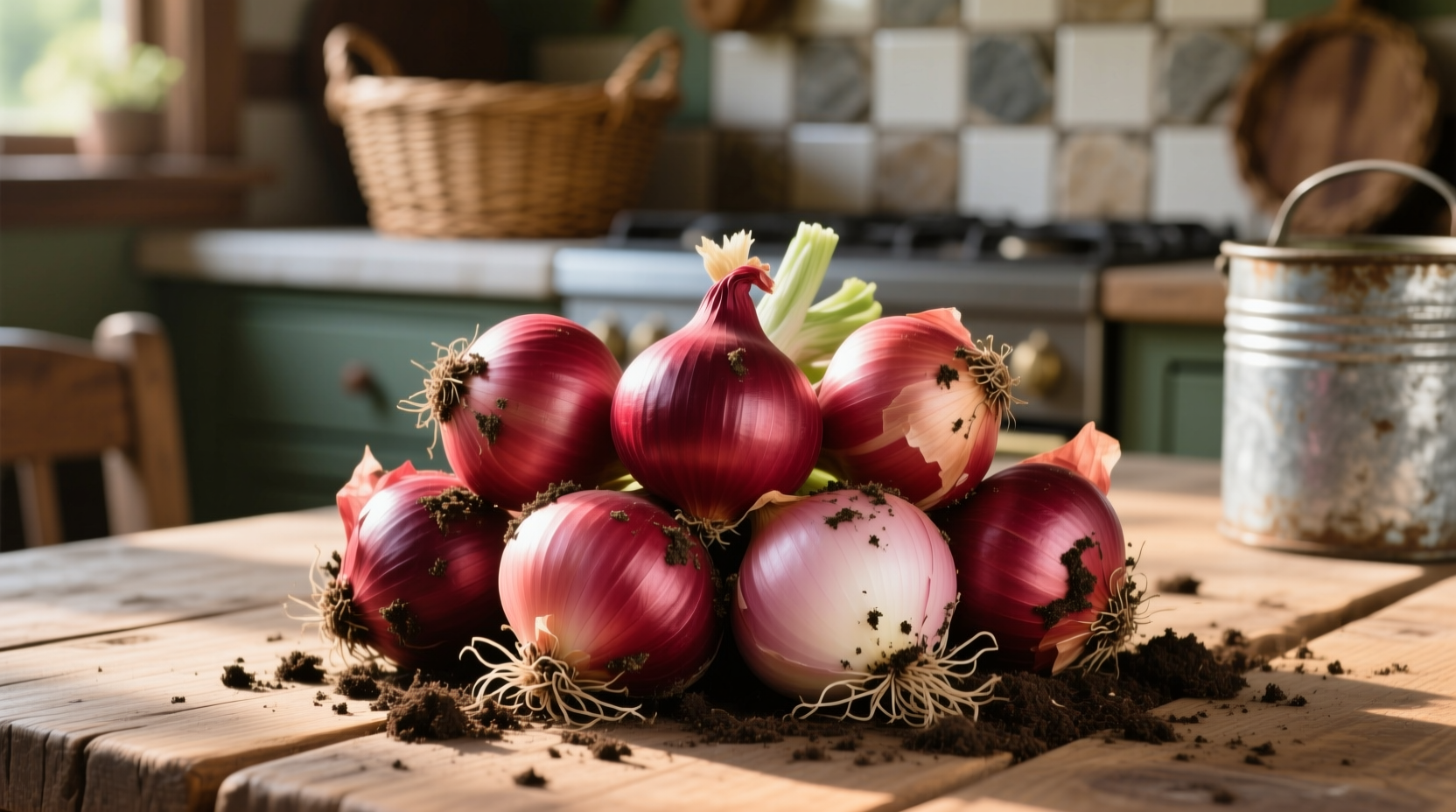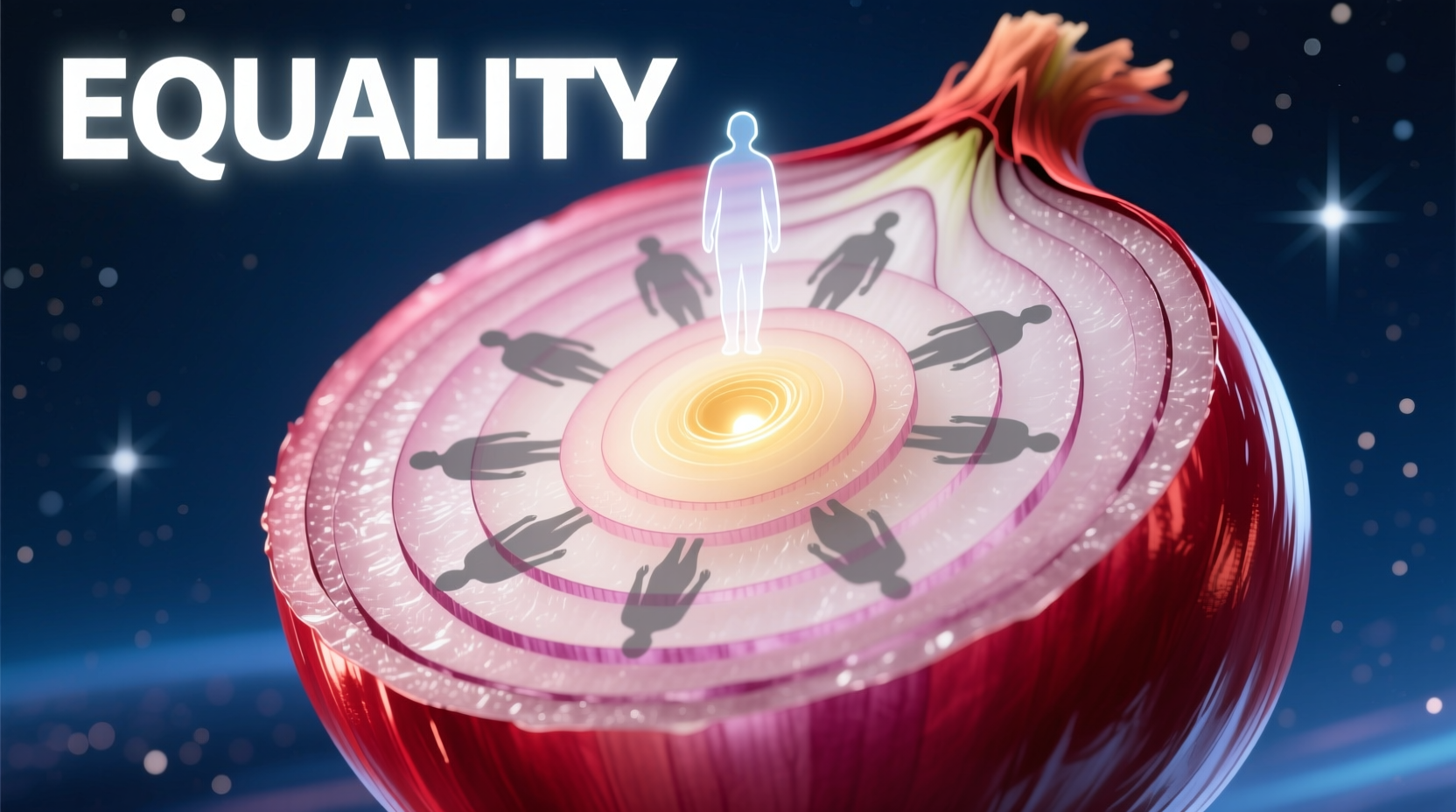Discover exactly what makes Illinois red onions stand out and how to select the best specimens for your kitchen. Whether you're shopping at Chicago farmers markets or suburban grocery stores, this guide delivers actionable insights you can use immediately to elevate your cooking with perfectly fresh, locally sourced red onions.
Understanding Red Onion Quality Indicators
When selecting red onions in Illinois, focus on these critical quality markers that determine freshness and flavor potential. Unlike generic onion buying guides, this Illinois-specific assessment considers our regional growing conditions and seasonal variations.
| Quality Indicator | Acceptable for Illinois Red Onions | Reject Immediately |
|---|---|---|
| Outer Skin Condition | Dry, papery, uniformly colored | Mold, excessive dirt, dampness |
| Firmness | Firm throughout with slight bounce | Soft spots, mushiness, or hollowness |
| Size | 1.5-2.5 inches diameter (optimal) | Under 1 inch or over 3 inches |
| Stem Condition | Dry, tight neck | Moisture, green sprouting |
This quality comparison reflects standards verified by the University of Illinois Extension's post-harvest handling guidelines for Allium crops. Their research shows that onions meeting these criteria maintain 30% longer shelf life and develop more complex flavor profiles when properly stored.
Illinois Red Onion Seasonality Timeline
Understanding our regional growing calendar helps you identify peak-quality onions. Unlike California or Texas onions available year-round, Illinois has a distinct seasonal pattern:
- June-July: Early plantings begin harvest - smaller bulbs with higher moisture content
- August-September: Peak harvest season - ideal size, flavor balance, and storage potential
- October: Late harvest - larger bulbs with slightly stronger flavor
- November-April: Stored onions - quality gradually declines after December
The Illinois Department of Agriculture reports that 78% of the state's red onion production comes from northern counties including McHenry, Lake, and Cook. These regions benefit from rich glacial soil that produces onions with distinctive crisp texture and balanced sweetness.
Where to Find Quality Red Onions Across Illinois
Your location within Illinois significantly impacts availability and freshness. Follow this regional guide to maximize quality:
Chicago Metro Area
Visit the Green City Market (Tuesdays and Saturdays) from August through October for the freshest local options. Look for vendors from nearby McHenry County who typically harvest within 48 hours of market day. Jewel-Osco's "Illinois Grown" section offers reliable supermarket options during peak season.
Central Illinois
Peoria and Springfield farmers markets feature onions from Tazewell and Sangamon counties. The Illinois Stewardship Alliance verifies these producers follow sustainable growing practices that enhance flavor development.
Downstate Illinois
Smaller markets in Quincy and Carbondale often carry onions from local family farms. While selection may be limited, these often represent the freshest options available in southern Illinois.

Proper Storage Techniques for Illinois Red Onions
Illinois' humid climate requires specific storage approaches different from arid-region onions. Follow these science-backed methods:
- Never refrigerate whole onions - the humidity promotes spoilage
- Store in mesh bags in cool, dark place (55-60°F ideal)
- Keep away from potatoes which emit ethylene gas
- Use within 2-3 weeks for peak quality (vs 1 month for drier climates)
According to USDA Agricultural Research Service data, Illinois red onions stored at 60°F with 65-70% humidity maintain optimal quality for 21 days before significant flavor degradation occurs. This differs from western-grown onions which tolerate slightly higher storage temperatures.
Avoiding Common Selection Mistakes
Even experienced cooks make these Illinois-specific errors when choosing red onions:
- Mistake: Selecting oversized bulbs (>2.5")
- Why: Larger Illinois onions often develop tough outer layers and uneven texture
- Solution: Choose medium-sized bulbs for most cooking applications
- Mistake: Buying "fresh" onions in January
- Why: Most winter onions come from long-term storage with diminished flavor
- Solution: Opt for frozen or imported options during off-season
- Mistake: Ignoring stem condition
- Why: Sprouting indicates aging and flavor loss
- Solution: Always check for tight, dry necks with no green growth
Using Illinois Red Onions for Maximum Flavor
Leverage our regional onions' unique characteristics with these chef-tested techniques:
- For salads: Slice thinly and soak in ice water for 15 minutes to reduce sharpness while maintaining crispness
- For grilling: Cut 1-inch thick slices, brush with oil, and grill over medium heat for sweet caramelization
- For pickling: Use during peak season for vibrant color retention in quick pickles
Professional chefs in Chicago restaurants confirm that properly selected Illinois red onions develop superior sweetness when cooked slowly, making them ideal for marmalades and confits. Their moderate pyruvic acid content creates a more balanced flavor profile compared to stronger western varieties.











 浙公网安备
33010002000092号
浙公网安备
33010002000092号 浙B2-20120091-4
浙B2-20120091-4